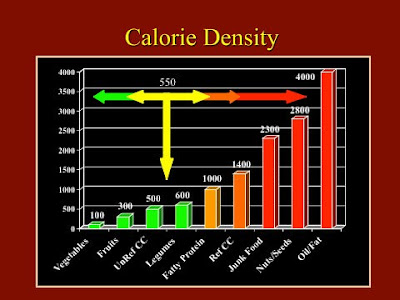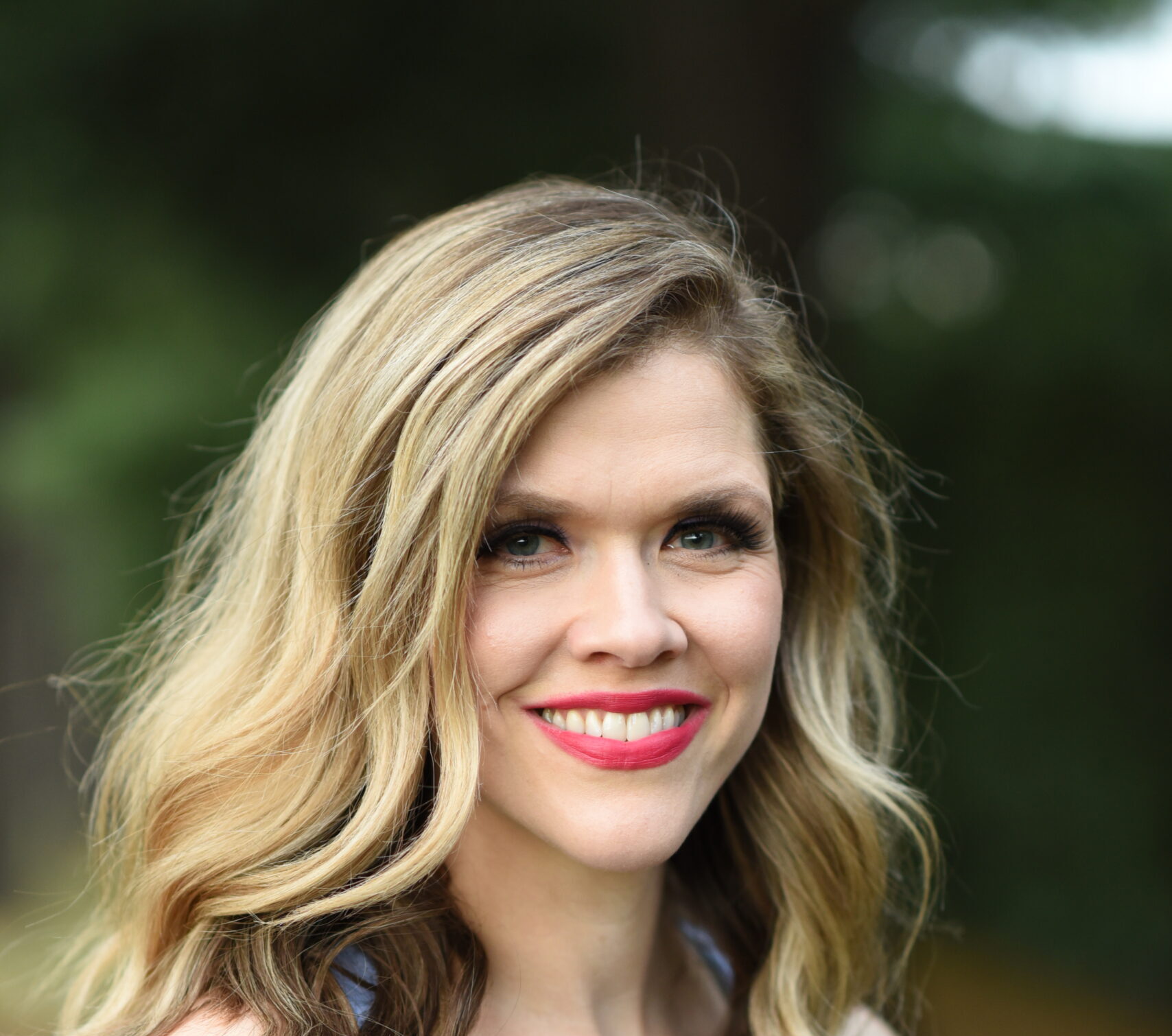[Winners of the vegan weight loss challenge will be announced after April 9, so stay tuned…!]
As a way to wrap up the 12 week challenge, I thought I’d try to summarize what I’ve learned about the best ways to lose weight over the years. I’m not a doctor, dietitian, or specialist of any kind. But I have had a lot of experience with this issue, I’m a woman, and through much trial and error, here is what I’ve learned. Hopefully you’ll find this helpful.
Nine Things I’ve Learned About Weight Loss for Women
1. Calories
It all comes down to calories. If you consume fewer calories than you burn, or rather, you burn more calories than you consume, you will lose weight. I know this simple truth, is hard to swallow. Especially when we’re not losing weight and we want to (believe me, I know!).
Yes, you can lose weight on the Zone, South Beach, Weight Watchers, Atkins, Sugar Busters, NutriSystem, ect. The secret to weight loss is not in the combination of foods you eat, or special foods you eat (that supposedly “rev up” your metabolism), or even ratio of macro nutrients (40-30-30 or 80-10-10), the secret to weight loss is consistently having a calorie deficit.
Again, burning more calories than you consume. As long as you are completely compliant with most any particular diet, you will lose weight, because these diets have been designed to be calorie-restricted. The problem lies when you go “off” the diet and resume life in the real world.
2. Thyroid Issues
If you have a problem with your thyroid, which can affect your metabolism (or the rate at which you burn calories), this is an issue that can be easily be diagnosed with testing and proper diagnosis with the help of a physician, and can be essentially “fixed” (or at least signficantly improved!) with the use of medication in combination with proper diet.
This is the one of the few instances where medicating can be really helpful. With a truly deficient thyroid, where the thyroid tissue is gone, there’s no way you can “rebuild” it, no matter how many carrots, apples, kelp you eat.
3. Myths
There are so many myths out there related to dieting. Here are just a few:
Don’t eat after 8 pm because all food consumed after 8 pm will turn to fat.
There is nothing magical about 8 pm. Your metabolism does not automatically turn off once you hit 8 o’clock at night. If you consume more calories in a day than you burn, it will be stored as fat, regardless of the time of day. For some people, regulating their eating to only at mealtimes and not eating after a certain hour can be helpful in reducing unnecessary caloric intake. Think about it, what sort of foods do most Americans eat after 8 pm–it’s most likely in front of the TV (mindless eating) and it’s probably not a big salad or a bowl of brown rice and veggies. I’d reckon it’s more likely to be a big bowl of buttered popcorn, ice cream, or a bag of potato chips :).
Celery and grapefruit “rev up” your metabolism.
Focusing on a few special foods is not very effective for weight loss and long term weight maintenance. The main reason is that metabolism, contrary to popular dietary advice, cannot be manipulated, and turned on and off, up and down, like volume dial.
It is true that there is a slight increase in your metabolism after eating food (it takes calories to digest food), but think of it this way–is it worth it to consume 300 extra calories, just to burn 30 calories (approximately the amount used to digest the food)? Your net gain is 270 calories. You’d be better off not eating those calories if they are not needed.In reality, there is very little you can do to “rev up” your metabolism. While you may burn a few more calories in the digestive process after eating celery, the effect is minimal, and hardly worth mentioning. Focus on the big picture rather than one or two “special,” so-called “fat-burning” foods.Eating mini-meals will “rev up” your metabolism.Again, more nonsense about metabolism. As if there are wide swings in our metabolism throughout any given day.Eating more frequently throughout the day can be helpful for highly active individuals who need a great deal more calories than sedentary individuals. Since plant-foods are high-fiber, lower calories, if you are eating a whole foods vegan diet, and require a lot of calories, most likely you will not be able to “fit” the amount of calories you need in your stomach (this is assuming you’re not eating a lot of nuts/seeds/avocados/refined flours/sugars/oils) in three meals, so eating more frequently is often necessary.
I know when I was nursing, I had to eat many more times throughout the day then I do now. There is nothing sacred about eating 3 meals a day, once a day, or 7 times a day. The main issue is your total daily caloric intake.“All I need to do is turn my fat into muscle.”Fat cannot be “turned into” muscle, these are two very different things–you burn stored fat as fuel when you have a calorie deficit. You build muscle with regular and proper resistance (ie. weight training, physical labor, resistance training).Skipping a meal will destroy my metabolism.Is your metabolism “destroyed” each night after 8-12 hours of not eating? We’ve designed our meal timing to fit our cultural preferences. In the US, we generally eat anytime, all of the time, with mealtime being breakfast, lunch and dinner.
Other parts of the world eat one or two meals a day. For instance, when I lived in Chile for a few months, it was cultural practice to eat no breakfast, eat a very large meal around 1 or 2 pm, and eat a very small dinner around 10 pm. And despite this, somehow, the people there still have “intact” metabolisms, most people being quite thin and petite. One of the best summaries of metabolism and the benefits of mini-fasting (abstain from food for 24 hours) is Brad Pilon’s Eat, Stop, Eat. Having worked for the supplement and fitness industry and been an “insider” for years, he finally broke away, having become so disgusted with the false advertising and promotion of these myths about metabolism and supplemental products. He has compiled and researched some compelling evidence to that shatters what most people believe to be true about eating habits.
What he presents is a compelling argument to return to sensible eating habits, and throw away the complicated calculations, manipulations, and obsessive behaviors that often come with dieting. I highly recommend any of his e-books (and no, I don’t know the guy, but I have read some of his work and really appreciate what he brings to the table). Eat protein with every meal because it provides satiety. Protein, ie. flesh food, because we all know that’s where we get protein, right? Right?This is one the most overused, overrated diet scheme and doesn’t work. Think about it, unless you’re living under a rock, or you deliberately starve yourself and/or eat a diet of only empty calories (like sugar and oil), you’re meeting the very easily achievable goal of 45-60 grams of protein a day because protein exists in all whole foods.
We’re all getting plenty of protein (unless you’re on a junk-food or calorie deficient diet)! And most of us are still struggling with our weight. Emphasis on one or two macro nutrients is one of those missteps that will keep us running in circles.Eat some fat with every meal because it provides satiety.Fat, usually meaning concentrated sources of fat like, oil, nuts, cream, butter. Again, another overrated piece of nonsensical dietary advice. Americans are getting plenty of fat in their diet, we don’t need to be told to eat more, even if it IS the “good fat.”
All plant foods, with very few exceptions (dates, nectarines, and raisins are the only ones that come to mind), contain fatty acids, the only ones of which are critical to our health are the essential fatty acids.
Not going to get into a discussion about omega-3’s and 6’s here (
go here for a discussion on omega-3’s), but I will only say both are contained in plant foods and usable by our bodies. Just to give you an example, oats are about 16% calories from fat, soybeans 37%, olives 91%, blackberries 13%, spinach 9%, lettuce 12%, tofu 48%, grapes 13%, raspberries 16%, strawberries 12%, watermelons 7%, you get the idea…. Fat is not only found in highly concentrated sources such as oils, but in all
whole (unrefined) foods.
I need to eat at special times of the day, to take advantage of my body’s digestive cycle. There aren’t any special times of the day, when your metabolism is at it’s “peak” and it doesn’t matter what time you choose to eat. What matters is your total caloric intake. Because your brain, heart and liver and other organs of your body never shut down, your body is constantly using fuel.Eat at the times when feels best to you. For some that means two meals a day, later in the day. For others, that’s breakfast lunch and dinner with some snacks. I’ve realized this is a highly individualized decision–a small-frame, sedentary woman who only needs 1300 calories a day is going to have different eating patterns than a large-frame, very-active woman or man who may need 2700-3000 calories a day.
4. Being Vegan
You don’t have to be vegan to be healthy. I am an ethical vegan, but only after being a vegan for health for some time. Wait a minute, you’re saying, you just said you don’t have be vegan to be healthy but you became a vegan for health?
Here’s how I see it. An extremely health promoting diet follows these principles:
80-100% of your diet consists of:
- a large amount of fruits and vegetables, fresh or frozen
- whole/unrefined, intact grains and starches
- legumes
- occasional and prudent amounts of nuts/seeds/avocado/olives/ect.
Calorie Density.
You limit your caloric intake.
You don’t starve yourself, but rather you don’t over consume calories. There are many ways to do this, but I think the most realistic and healthiest approach is by making whole plant foods the center of your diet.
Plant foods are high in fiber and water, and nutrients, making these foods an optimal tool for long-term weight maintenance. Personally, I eat as much as care to eat of calorie-dilute plant foods and by limit calorie dense foods. One of the best resources to learn more about calorie density [calorie density relates to the calories per gram of a certain food; veggies are on average 100 calories/lb. while whole wheat bread is 1200 calories/lb., for example] is from
Jeff Novick, R.D., who has several excellent
DVD’s relating to the topic.
Roy Waldorf, one of the pioneer’s in calorie restriction research and author of
Beyond the 120 Year Diet, also provides some great research related to caloric intake and disease prevention.

Numbers are equal to grams (side bar) and calories. [Source:
Jeff Novick]
That’s it.
If you feel compelled to become vegan because you do not care for the taste or after-effects of eating animal foods (as I did) or because of an ethical/moral persuasion (as I did), or for other reasons such as environmental (as I did), more power to you.
If you have no desire or don’t feel it’s realistic to become vegan or vegetarian, you can still be very healthy. Just follow the principles above.
5. Simplicity.
Eating for your health does not have to be time consuming. But it often is, especially at first, when we’re trying to please and impress our family and friends with gourmet fare. I’ve learned over the years that simple is better.
6. Food as Drug.
Anytime you eat when you’re not hungry (don’t need the calories) but rather out of boredom, social pressure, habit, sadness, stress, or otherwise, you are using food as a drug or a stimulant, an escape or “filler.”
A way to not deal with the present or what is. Food, particularly processed food, which is stimulating (and actually can increase the appetite) is one of the most popular drugs of choice as it is the most socially acceptable and readily available.
7. Lifestyle.
Your weight is a reflection of your lifestyle, which includes your eating rituals, food choices, and level of activity. If you are overweight, you are living the lifestyle of an overweight person. Seems pretty obvious, but this concept has finally clicked with me. Everyone, no matter if you do not move a finger during the day, burns calories, so the problem is not that you are not burning enough calories (as some gyms might have you think).
This is called your
BMR, the amount of calories you burn just staying alive. You burn these calories, day in day out, regardless of your physical activity. So if you simply adjusted your caloric intake to this amount, you would lose weight. But this is not as easy as it sounds. Why? Because we all have eating habits and rituals, that we like and consistently do.
Ever heard of the set point theory?
It’s a theory that your body has a weight that it “likes” to be at and will do everything to stay at that weight. We cannot defy the laws and principle of energy, therefore, if you consumed fewer calories than you burned, you would lose weight, regardless of the weight you currently are. The reason why most of us maintain a certain weight, or set-point, is more likely because we are at a “lifestyle” set point.
Meaning, we like to do a certain amount of activity, we eat more-or less the same foods and same amount of foods each day, therefore consuming an a set average amount of calories that keeps us at a particular weight or “set-point.”
Your set-point is easily adjusted by adjusting your lifestyle. Increase your activity. Get rid of eating habits and rituals that only increase unwanted calories and encourage mindless eating (like eating a huge bowl of ice cream every night right before you go to bed…which was me, about 6 years ago!) and replace them with positive habits and activities (like spending time with a loved one or spouse). That’s number one key. You have to replace the food with something. Otherwise, you will keep going back to the food as a way to deal with stress, boredom, ect.One thing that I’ve had to learn and daily practice, aside from eating whole foods, which at this point is just simply auto-pilot, no thought (although some in my extended family and friends may still think I live day by day on sheer willpower, which if that were the case, I’d long abandoned my vegan ways), but to practice eating when my body needs it.
This has been so hard for me! I have used food as drug–to make me feel better when I’m stressed, tired, bored, when I’m watching movies, ect. And to break away from this, I have to be honest, is not easy.
8. Exercise (80% diet, 20% exercise).
Find something that you love to do. Move every day in a structured way for as much time as you have as you can (an hour’s good for most people). Sweat, get your heart rate up most days of the week, and do some sort of mind/body and resistance work out (or try this free
18 minute video workout).
I love Pilates, yoga, and kickboxing.
My new favorite is Zumba (I don’t teach it though), although I find it hard to squeeze in a Zumba class when I’m teaching a dozen of my own classes each week, but I love it because it doesn’t “feel” like exercise–just dancing and having fun, and it’s a great workout. The most important thing is to be connected to your body when you exercise.
Be aware (even if you’re running on a treadmill), and do it because you love it! I hope we are past the days of mindless, painful/boring/drudgery exercise, because, life is too short. There are just to many fun things to do (especially in the exercise world). If you hate running or yoga, or what have you, go find something you do love.
Doesn’t matter, just MOVE.
9. Time.
Weight loss, changing habits, overcoming addictions, these all take time. Give yourself time.
Remember slow and steady wins the race…
 Numbers are equal to grams (side bar) and calories. [Source: Jeff Novick]
Numbers are equal to grams (side bar) and calories. [Source: Jeff Novick]


Comments